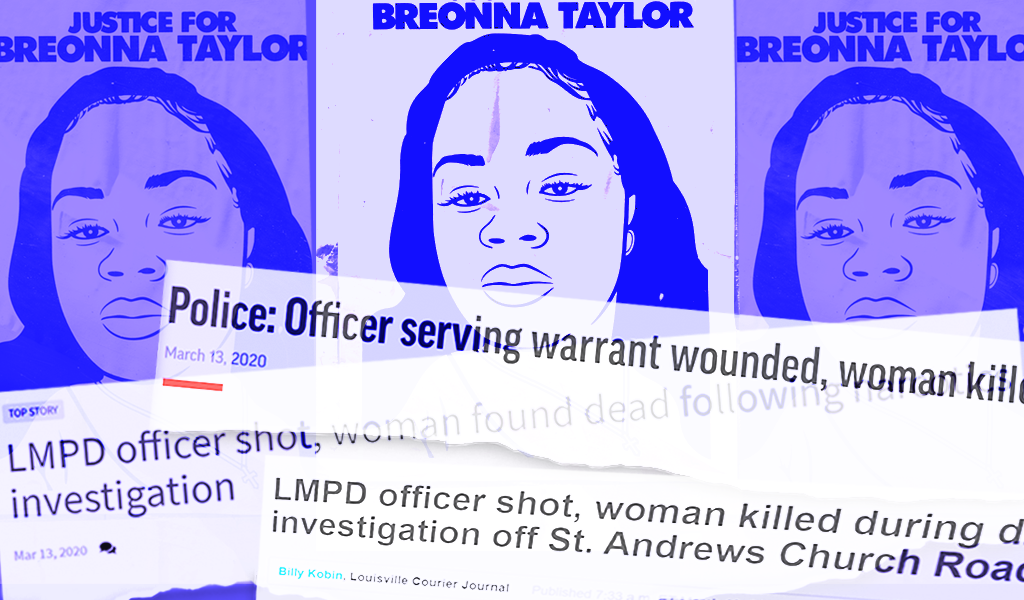
On March 13, 26-year-old EMT Breonna Taylor, a Black woman, was shot and killed in Louisville, Kentucky, by police officers who had mistakenly broken into her home during a narcotics investigation that did not involve Taylor. While Taylor’s name has now become a rallying cry for demands to end police brutality, early local media reports described Taylor and her boyfriend, Kenneth Walker, as “suspects” at the center of an investigation, focusing the narrative on an injured police officer and uncritically accepting the police version of events.
The initial reporting is indicative of the media's broader problem with sanitizing reporting on police brutality in a way that effectively covers for police officers who harm civilians. Recent reporting from NPR has also noted the detrimental effects these stories had on Taylor’s grieving family.
On March 13, shortly after midnight, police officers carrying a “no-knock” search warrant used a battering ram to break into Taylor’s apartment, and they fired several shots hitting Taylor at least eight times. The police claimed that they identified themselves multiple times and only opened fire after Walker shot first. Walker and several neighbors have denied that the police identified themselves before shooting Taylor, and he says he fired in self-defense, believing the unidentified officers were actually burglars. (During his call to 911 for help, Walker told the operator that “somebody kicked in the door and shot my girlfriend.”) Walker was initially arrested and charged with assault and attempted murder of a police officer; the charges against him were dismissed on May 26.
As summed up by New York magazine’s The Cut, “No drugs were found; the warrant in question targeted another person, who lived miles away and had already been detained by the time police entered Taylor’s home.”
While many are now pointing to the injustices in the case, initial local reporting uncritically repeated the police version of events, crafting a narrative that Taylor and Walker were “suspects” in the narcotics investigation and had knowingly attempted to harm a police officer. Local media outlets also used passive voice to discuss Taylor’s killing, obscuring who was responsible, and avoided attributing blame to the police officers, who in their telling simply “returned fire.”
On March 13, WDRB, a local Louisville station, initially prioritized the injury to a police officer in a headline, stating that a woman was “found dead following narcotics investigation.”


